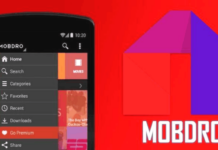If you are wondering how Cash App works, you have come to the right place. The service works by transferring money directly from your bank account to a recipient's Cash App balance. The process is fast and secure, and you can send and receive funds instantly. What is interesting about Cash App is that you can even set up two shipping options for money transfers. In addition, you can also choose to have the money sent directly to the default debit card of the recipient. However, you should be aware that if you opt for instant deposits, you will be charged a small fee.
Money is transferred from your bank account to a recipient's Cash App balance
Once you've signed up for Cash App, you can send and receive money instantly. You can send money to family and friends or to a linked debit card. You can also view the details of each completed transaction. In addition, you can view how much money you've sent and received. If you've sent more than the amount in your account, you will be prompted to verify your account. If you need further assistance, you can contact the Cash App customer support team.
Cash App works with your bank account to transfer money to the recipient's Cash App balance. You can also receive direct deposits, including paychecks and tax returns. If you have a linked bank account with the recipient, you can use the same account to transfer money to them.
If you link your Cash App account to a linked account, you'll avoid incurring fees from the Cash App service. You can also avoid fees by choosing the "Standard" option when withdrawing money from your account. However, it may take up to three banking days for your money to reflect in your recipient's account. If you need your money sooner, choose the Urgent option. In that case, you'll incur a 0.25 transaction fee on top of any other fee, but your recipient will receive it immediately.
Cash App is a popular way to send money, but it can be risky if you're not careful. You may accidentally transfer money to the wrong person, and you can't get your money back unless they ask you. It's also important to double check the person's profile before sending money to them.
Transactions happen at lightning speed
Lightning Speed is a feature that lets Cash App users cash out instantly. This feature works with any Visa-compatible bank and card network. Depending on your bank and card network, Lightning Speed may not work with every Cash App transaction. You'll need to double-check your recipient's details before sending money.
Lightning Network has been a topic of speculation for months, but Cash App has now made the integration official. Lightning Network, also known as LN, helps lower the load on the Bitcoin blockchain by requiring few interactions. This speeds up transactions and reduces fees. Transactions are validated on the blockchain in seconds, rather than 10 minutes. Lightning Network also enables users to send and receive bitcoins via Lightning compatible wallets.
Fees are charged for instant deposits
Cash App charges fees for both instant deposits and withdrawals, but these fees vary depending on the method of funding. For example, when funding a personal account, Cash App charges a minimum fee of $0.25. But when funding a business account, Cash App charges a fee of 2.75%. This fee is calculated on a per transaction basis.
Cash App also charges fees for sending money. This fee is typically around 1.5 percent of the total deposit. It is possible to deposit as much as $1000 a week, but if you want to send more than that, Cash App requires a fee of 2.75% of the total transaction amount. The app limits the amount of money you can send and receive using this method, so it's best to use it for small deposits only.
Cash App also charges fees for receiving money, but the fees are not as large as those of other payment apps. Depending on the source of the money, Cash App may charge as much as 1.5% of the total amount you send. This fee is also applicable for receiving payments made to your business account.
If you're worried about scams, Cash App can help you avoid them. Its early deposit limit is small, at $1000, and it does not come with Federal Deposit Insurance Company protection. If your transaction is fraudulent, Cash App will cancel the payment and return the funds to the linked bank account. The funds will typically be available within a day or two.
Cash App also allows you to deposit funds to your bank account. However, you need to have an active bank account for this. You must provide the routing number of the bank you're transferring funds to, otherwise the bank will deduct the amount before depositing the money.
Security
Cash App offers a number of security features, such as two-factor authentication, which requires the user to enter a PIN before making a transaction. It also lets you set up an automatic notification when an unauthorized transaction has been made. Additionally, you can also enable an always-on antivirus app to protect your device from malware.
Cash App uses data encryption to ensure the security of customer information. It also stores the encrypted data on its servers or third-party servers in the United States, Canada, and European Union. It also uses administrative, technical, and physical safeguards to ensure that customer data is secure. Cash App also regularly installs security updates to keep it as secure as possible.
In the meantime, Block Communications is contacting 8.2 million of its Cash App users to let them know about the security breach. Fortunately, the users are unlikely to feel any ill effects. However, it is important to note that a recent breach of the app's servers has exposed a massive data breach. The company's parent company, Block, filed a breach notification with the SEC, detailing the information stolen.
The company is investigating the security breach and is working to remediate any problems. However, it is unlikely that the hack will affect its business or financial results. As a result, Cash App customers will have to wait a bit before knowing whether their data will be compromised. The company will also implement further security measures to ensure the information they have stored is secure.
Cash App users should use security locks on their phones. This is a highly recommended practice. Not only does it prevent identity theft, but it also helps prevent fraudsters from accessing their account. Users should also use biometric security measures such as fingerprints or Face ID to log into their accounts.
Privacy
Cash App protects your privacy by not revealing your name or address to the recipient of your payment. Cash App also does not report your transactions to the IRS or any other government body without legal notice. Despite the privacy protection offered by Cash App, you should take steps to protect your privacy. For starters, do not create a fake account or send money to people you do not know.
Many people are concerned about the privacy of their financial data. Although mobile payment apps offer real convenience, they also suck up a lot of data from users. Many of these apps come with vague disclaimers that do little to protect customer privacy. And the financial data gathered by these apps can be extremely personal, so they're not a good choice for anyone who values their privacy.
Cash App also collects a variety of data about users, including language, location, network provider, and other information that is not publicly accessible. Regardless of why you use the app, you should read Cash App's privacy policies to see what they require of you. This should help you decide whether or not you agree with their terms.
In addition to its privacy features, Cash App has an easy-to-use user interface. Many users wonder how to delete their account history. While you can't delete it, you can always choose to make your account private. Go to the settings section of the app and tap on the "Privacy & Security" option. Then, scroll down to the "Incoming Requests" tab, where you can toggle the switch to turn it off. This will ensure that only those you approve of can view your information.
Cash app security is a crucial consideration when using the app. First, you must make sure Face ID is enabled on your iPhone. Secondly, make sure that Security Lock is turned off when the app is not in use. You must also make sure that your cash app's privacy settings are updated, so that unauthorized individuals cannot access your account.





